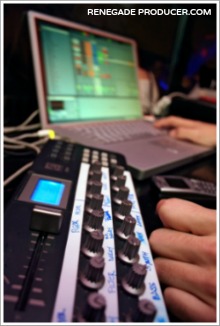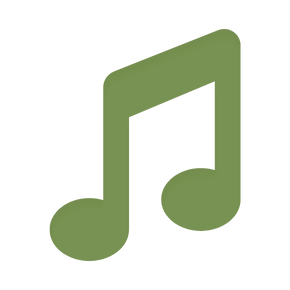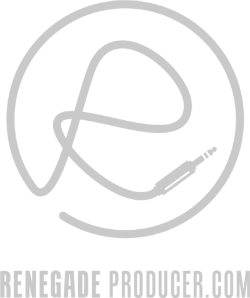25-step music production process checklist and video workshop >>>
How Do I Choose a Music Production Computer?
Your music production computer forms the core of your home music studio so you want the best you can afford.You want keep these simple words in mind when you search for your music production computer... Bigger, Faster, More! |
 |
Bigger CPU...
... which means go for Intel or AMD (to
match with your Intel or AMD chipset on the motherboard), as fast as
possible because you want to run multiple effects plug-ins and virtual
instruments and CPU plays the key role here.
Multi-core processors now allow you to run more programs at once.
Faster RAM...... translates to a faster computer, faster software operation and faster streaming of audio, so...
... get as much as your motherboard (and pocket) can take!
4 Gig gets you off to a good start, 8 Gig and you start taking off. And you don't stop...
... more RAM! more RAM! Oh, and while we're at it...
More Disk Space...
... with two disks at least to separate
your operating system and music production programs from your audio
files and your sequencer project files.
Your audio files and music will take up a lot of space.
Can you ever have enough disk space on your recording PC?
Only when you've stopped making music. And that will never happen!
So get as much as possible.
More inputs and outputs...
... which depends on your motherboard and on your recording sound card or audio interface.
More
inputs and outputs means you can plug in more of your beat toys and
gadgets, and allows you to expand your music production computer in
future (which you will!).
Yes, these are the bare bone basics,
because I tend not to get too technical (yawn), and leave that for the
propeller-heads. 80/20 remember?
I'm also not capable to tell you
which system would be best for you as this depends on the music you
wish to produce and the music software you wish to run. This is why I
try to provide the basic guidelines for you.
It's up to you to
research well before you spend your hard-earned money on your choice of
music computer because your choices can be costly when you don't plan
well.
The best sequence to set up your studio is...
First
choose your music making software, then choose a compatible recording
sound-card (or audio interface) and then lastly, choose your music
production computer.
Oh, and one last tip...
You can get
much more value and power for your money when you purchase a desktop
instead of a laptop for your recording studio and desktops are also
easier to fix than laptops. Get a laptop only when you really need to
be mobile and make sure it's a reputable manufacturer you buy from.


Learn to understand equalisers and frequencies to supercharge your mixing skills and get results, fast...

New producer? Learn everything you need to produce your first professional track right now...

Would you like to discover the simplest and easiest way to learn music theory as a music producer?
Share this post. Spread the knowledge so other producers can benefit too:
- Renegade Producer
- Home Studio
- Music Production Computer
ⓘ Some pages contain affiliate links so I might earn a commission when you buy through my links. Thanks for your support! Learn more


